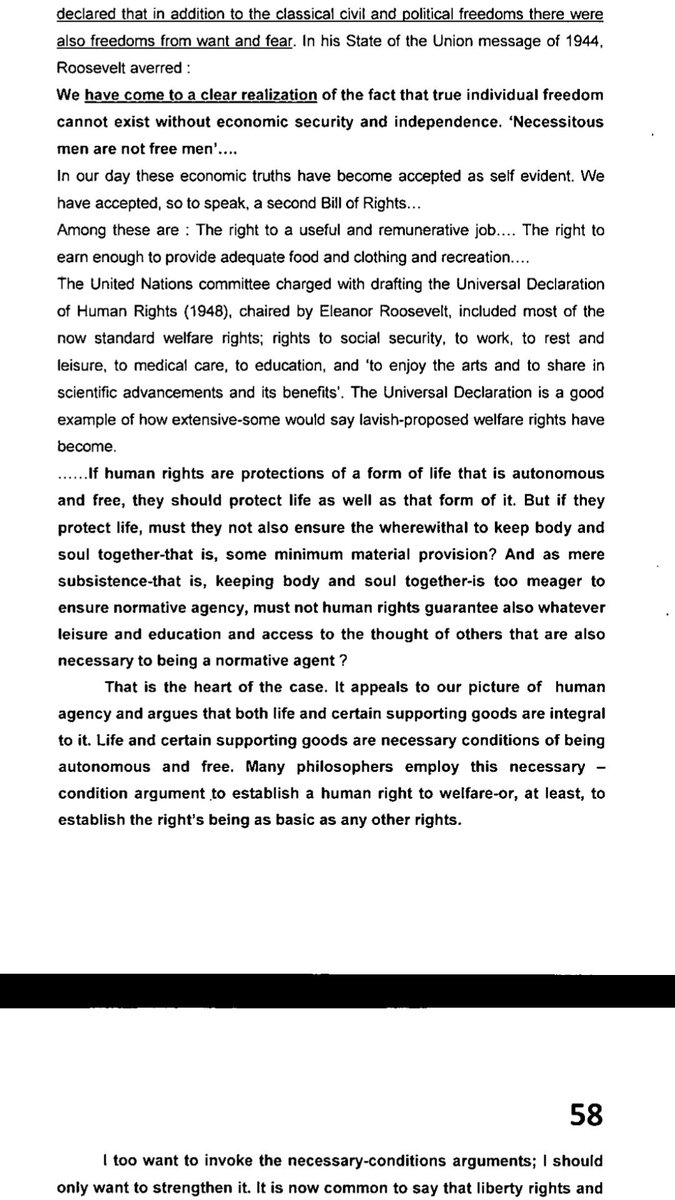Rakesh Dwivedi continuing the argument for the State. The State will finish this week.
RD is talking about reasonable expectations of privacy.
RD reads out an article from the Harvard Law Review saying that privacy is in opposition to the pursuit of knowledge.
RD has argued that Indian needs innovation and development of knowledge, and also that the right to privacy is subject to the rights KS others to lead ordinary lives.
RD says that there is a vital state interest in ensuring that welfare benefits are not dissipated, and data mining to ensure this is permitted.
He says that the entire Aadhaar activity is in the relational and public sphere. He says that demographic information and facial photograph don't have any privacy concerns. There is no reasonable expectation +
He says that at the requesting entity point, it's all dispersed and decentralised, and so it doesn't deserve the level of protection that the CIDR is given.
Chandrachud J says that the point seems to be that core biometric information has higher privacy concerns
You can read the case here: oyez.org/cases/1989/88-…
en.m.wikipedia.org/wiki/Doe_v._Re…
RD says that the American judgments cited by the AG on fingerprints have all been approves by the US SC.
He repeats that Marper stressed that it was only being decided in its specific context.
supremecourt.uk/cases/uksc-201…


